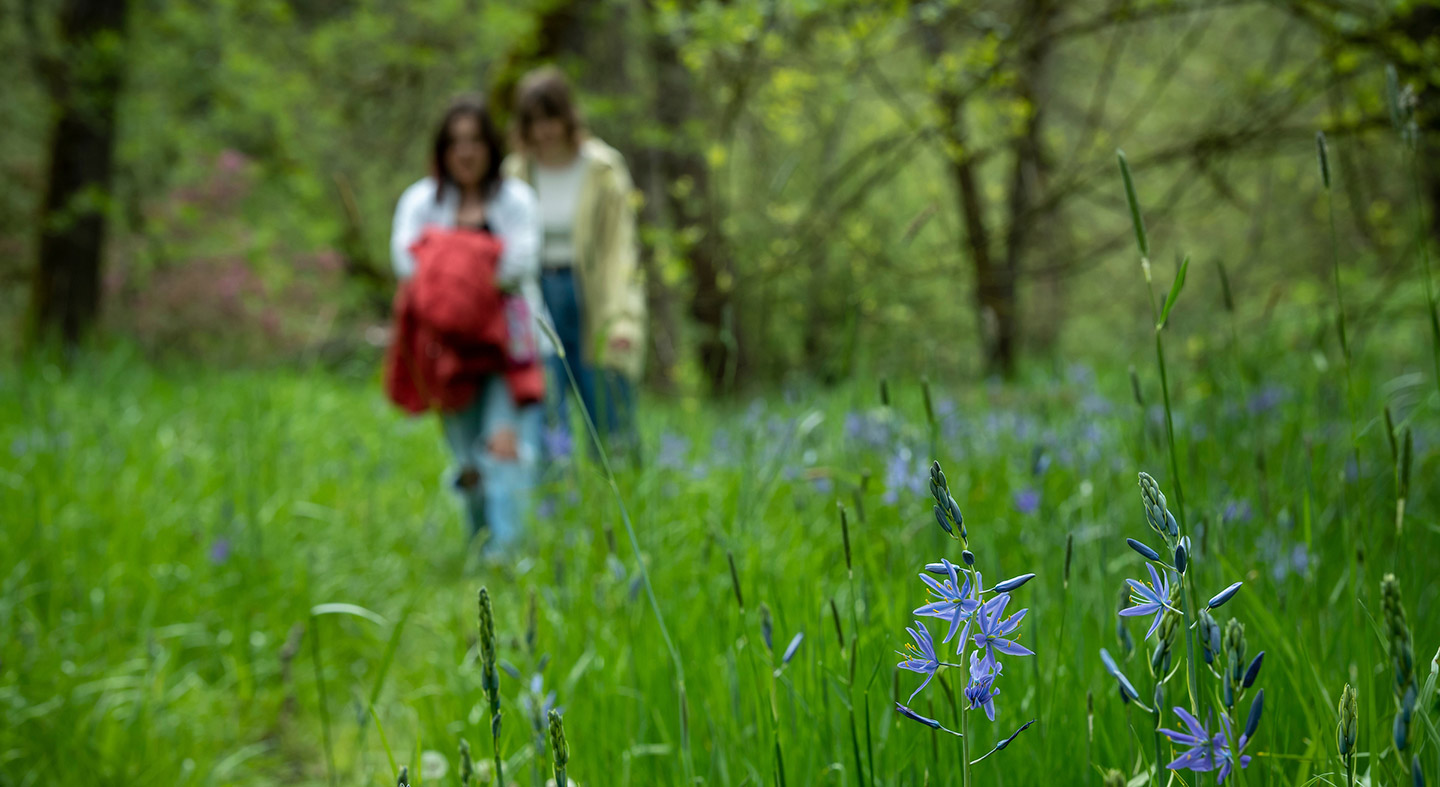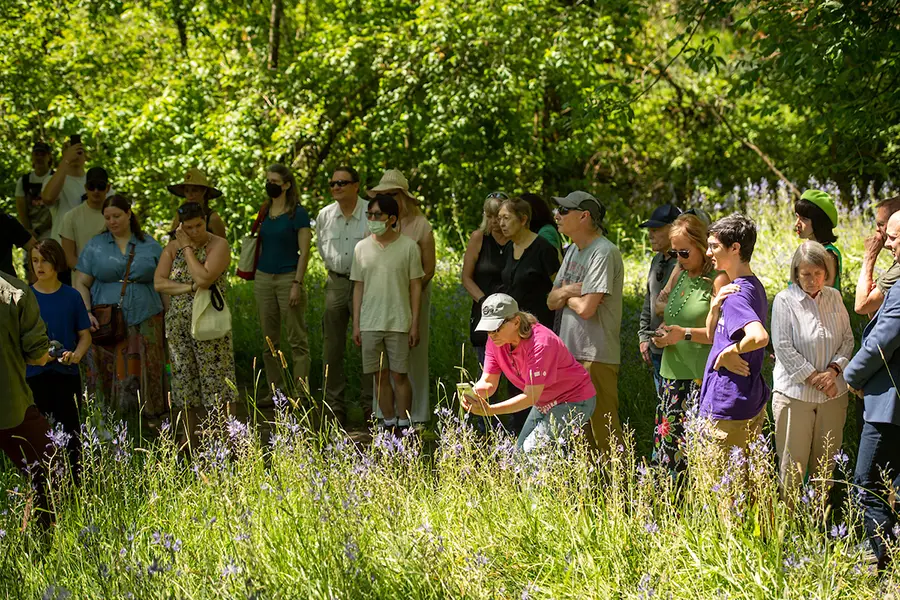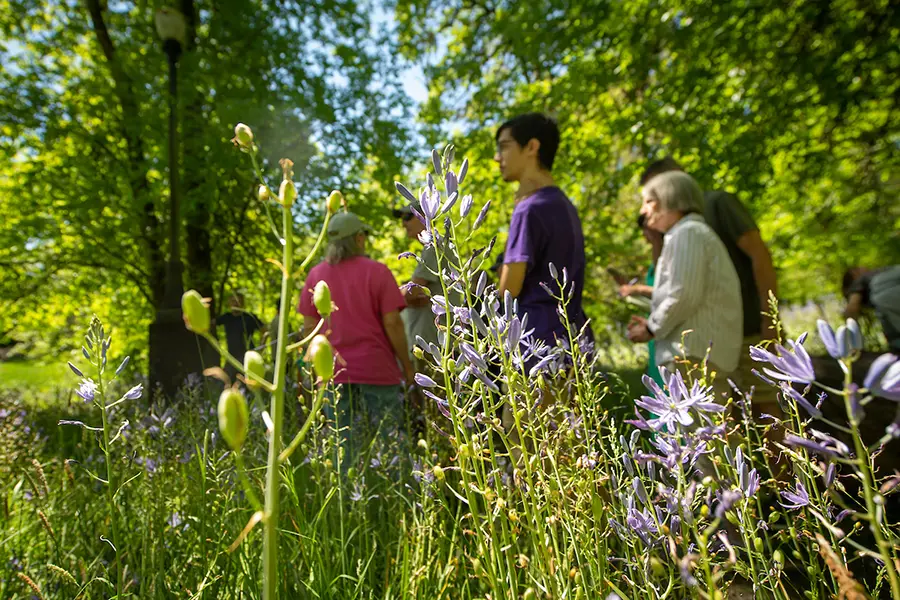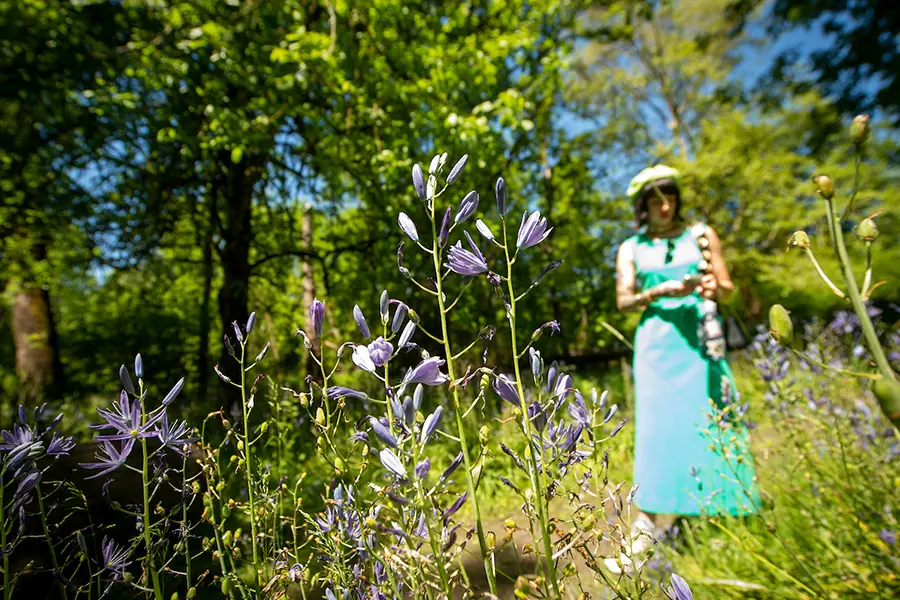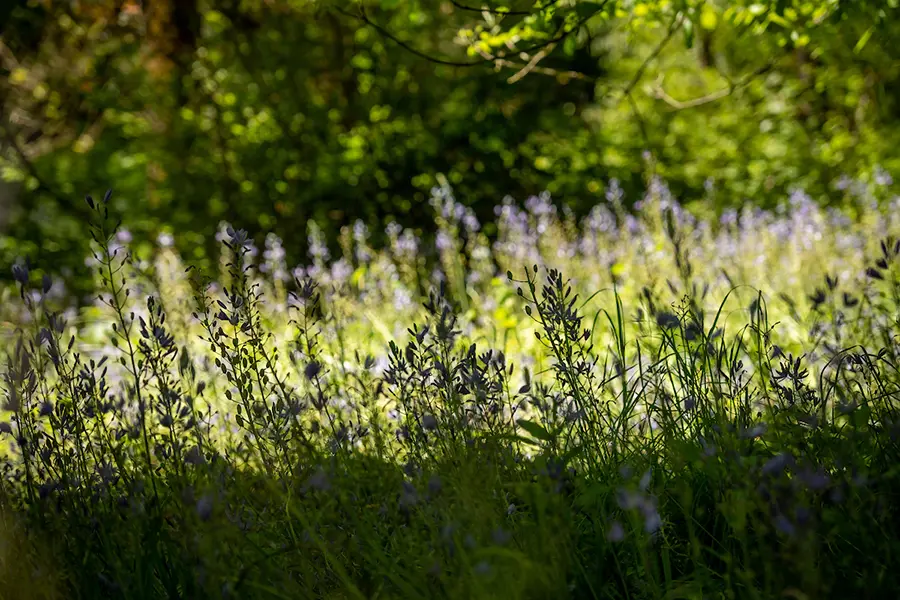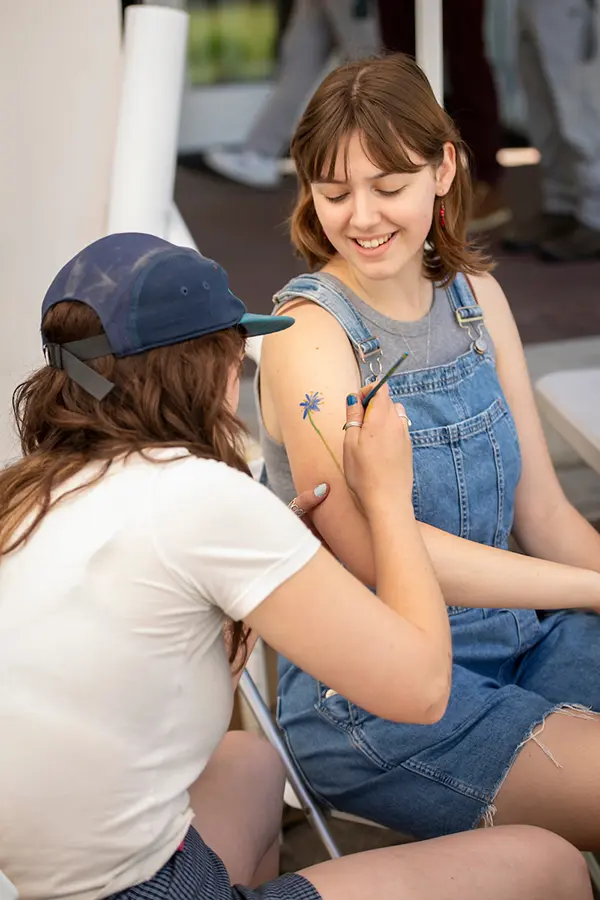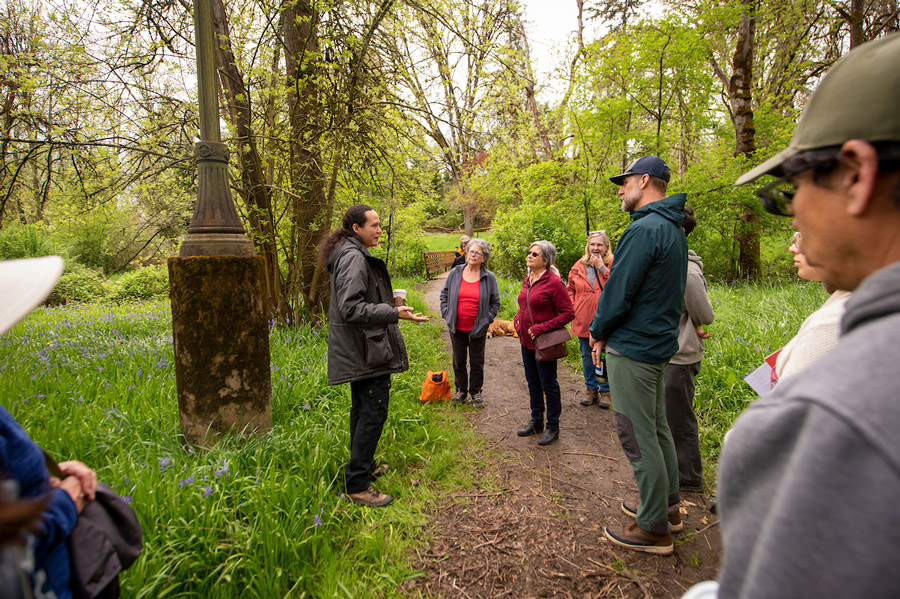Schedule
Friday, May 9, 2025
All events take place in and around Nicholson Library unless otherwise noted.
1662 S.E. Lever St., McMinnville, OR
10 a.m. – Opening remarks (Linfield and Tribal leaders)
Ongoing activities:
- Outside tables: Greater Yamhill Watershed Council (GYWC), Yamhill Soil & Water Conservation District (YSWCD), Linfield environmental studies, McMinnville Public Library, Camas Journal, kid’s activities
- Inside tables: Chachalu Tribal Museum and Cultural Center, indigenous creators market, Third Street Books
- Gallery exhibit: exhibition of indigenous basketry, belongings and photos by Stephanie Craig, basket weaver and ethnobotanist
Guided tours of Cozine Creek Camas Patch - tour shuttles depart from the Nicholson Library at:
- 10:30 a.m.
- 11:30 a.m.
- 12:30 p.m.
10:30 a.m.-4:30 p.m. – Indigenous Creators Marketplace
11:00 a.m.-1:15 p.m. - Indigenous-inspired menu available in Dillin Hall (meal plan or payment required)
1:30 p.m. – Speaker: Joe Scott, director of the Traditional Ecological Inquiry Program, presenting "Revitalizing Cultural Burning in the Willamette Valley"
3 p.m. – Speaker: David Lewis, assistant professor of anthropology at OSU, presenting Tribal Histories of the Willamette Valley
4:20 p.m. - Closing remarks
4:30 p.m. – Festival closes
Nicholson Library is located off SE Lever Street in McMinnville. Parking is available in several lots adjacent to the library, and visitors may park in any non-reserved location.
For more information or to request disability accommodations related to this event, please contact Dr. William Fleeger at wfleeger@linfield.edu or 503-883-2341

